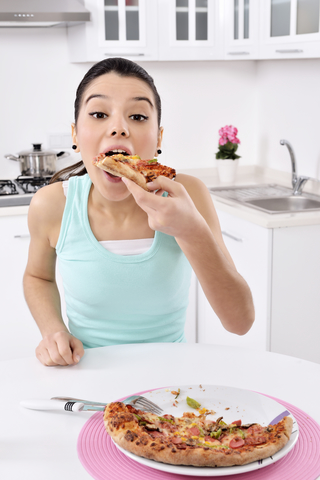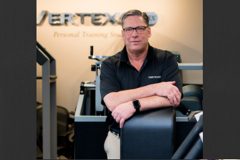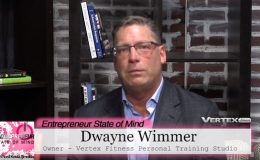Why Am I So Hungry After My Workout?
We’ve all been there: you’ve just started exercising, or increased your exercise activity, and you suddenly start feeling more and more ravenous and hungry.
What do you do? Eat more and potentially compromise the sweaty workout you just did, or try to not eat?
Post-workout hunger — especially when you’ve just started a regular routine — is normal. It’s simply your body’s response to the calories you’re burning from getting up and moving.
You’re supposed to be hungry after you work out. Exercise burns calories, uses up your glycogen and stimulates your appetite.
It also dehydrates you and if you don’t drink enough water before, during and after your workout, you’re going to feel hungry. Also, improper pre-workout fueling can lead to increased hunger later in the day. Exercising in a fasted state will only make you feel hungrier. In some cases, appetite may be suppressed during or immediately after exercise. But hunger hormones may increase later in the day, making you want to eat. A lot. Satiety hormones can also decrease, making it harder to feel full and satisfied, especially for women.
Exercise works great for weight maintenance, but not weight loss. It’s also important for decreasing belly fat, reducing your risk of heart disease and diabetes, and increasing your level of happiness.
Giving up exercise is not an option—it’s part of a healthy lifestyle. Understanding that exercise will increase your appetite and arming yourself with steps to keep it in check is part of the plan for success.
The more you drive your car, the more gas it needs, right? Your body also needs more food to fuel more activity. The trick is to satisfy your appetite without eating more calories than you just burned.
Pair protein and carbs
When you do need a snack to recover from a tough sweat session, I recommend a 4:1 ratio of carbohydrates to protein. This will allow you to begin to replenish your energy levels and repair muscle damage resulting from the workout. For workouts less than an hour, keep your snack to 150 to 200 calories total—an open-faced peanut butter and jelly sandwich, a slice of turkey and cheese on crackers, or a handful of trail mix, for example. If you worked out for longer than an hour and aren’t eating a full meal soon, aim for half a gram of carbohydrates for every pound of body weight. A 140-pound person, for example, should refuel with 70 grams of carbs and about 18 grams of protein. (An energy bar or protein shake, plus one of the healthy snacks above, should do the trick.)
Drink water as soon as you’re done
Replacing the fluids you lost during a workout should be priority number one. This will also reduce your appetite. Just don’t consume massive quantities. If you feel hungry, you might actually be thirsty. Most people don’t drink enough water before, during and after exercise. The brain confuses a lack of fluid with not enough food, signaling hunger pains. If you just ate a meal an hour ago and are already feeling hungry, try drinking 12 ounces of water and waiting 15 minutes; then reassess your hunger level. A great plan for staying properly hydrated includes drinking 8 to 12 ounces of water when you wake up, 8 ounces before each meal, 12 to 16 ounces an hour before you exercise, and 24 ounces after you exercise.
Snack throughout the day
It may seem counterintuitive, but eating more throughout the day may be your ticket to consuming fewer calories overall, especially if you tend to pig out post-workout. Incorporating two to three healthy snacks throughout the day will help regulate hunger between meals, increase energy, and keep metabolism bumped up.
Try these snack and mini-meal ideas
“Why Am I So Hungry After My Workout?”, Written for Vertex Fitness Personal Training Studio by Ashvini Mashru, RD
Request a complimentary first session at Vertex Fitness, Voted the BEST Personal Training Studio on the Main Line
Click HERE and we will schedule a session to try it yourself








Leave a Comment